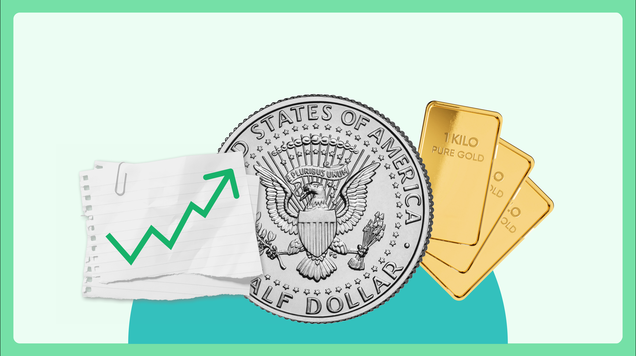What drives demand for gold?
Gold holds emotional, cultural and financial value but what truly drives the desire for gold? Let’s look at the key reasons behind its worldwide demand.

Gold’s demand is driven by its cultural, economic and industrial value, making it a key asset across various sectors.
The jewellery industry, particularly in India and China, plays a major role in driving gold demand through cultural traditions and celebrations.
Gold is widely regarded as a safe-haven asset, offering protection against inflation, economic instability and market volatility.
Gold’s industrial uses, especially in electronics, medical devices and emerging technologies like solar energy, continue to increase its demand.
Why does gold remain in demand?
Gold has always been one of the most sought-after assets in the world, prized for its cultural, economic and industrial value. Whether used for jewellery, investment or in technology, it plays a vital role in global markets.
Gold’s demand is largely driven by its ability to offer stability in times of uncertainty. It holds significant cultural importance in many regions, serves as a safeguard in financial markets and has critical industrial applications. As an economic hedge and a key component of portfolios, gold remains an essential asset across multiple sectors.
Both individuals and organisations invest in gold as a way to protect wealth and diversify their financial strategies. Gold’s reliability as a store of value, combined with its status as a highly liquid asset, makes it an attractive option for both long-term investors and those seeking to safeguard against market volatility.
From its historical cultural significance to its emerging role in industries like technology and energy, gold continues to be a valuable resource in the evolving global economy.
Jewellery and cultural significance
The largest driver of gold demand is the jewellery industry, particularly in countries like India and China. Gold has long been a symbol of wealth and status, and it plays a vital role in cultural traditions, including weddings, festivals and celebrations.
The demand for gold in cultural traditions ensures that gold continues to be a staple in societies around the world, making it a primary store of wealth for many families.
Gold as an economic hedge
Gold is widely recognised as a safe-haven asset, especially during times of economic instability or geopolitical tensions. When financial markets become volatile, investors and central banks buy gold to diversify their portfolios and protect against risks. As an economic hedge, gold acts as a safeguard for wealth.
Gold has also long been seen as a protection against inflation. As the value of currency declines due to inflation, gold tends to retain its value or even appreciate. This makes it an attractive investment for those looking to protect their wealth from the effects of rising prices.
Industrial uses of gold and emerging trends
Gold's industrial applications contribute significantly to its demand. It’s essential in electronics due to its excellent conductivity and resistance to corrosion, making it a key component in smartphones, computers and medical devices.
Gold is also becoming increasingly important in emerging industries, particularly those focused on clean energy and sustainability. Its applications in solar technology and other renewable energy sectors are expanding, driving up demand in these developing fields. As the global economy shifts towards more sustainable practices, gold’s role in the future of technology and energy is expected to grow.








